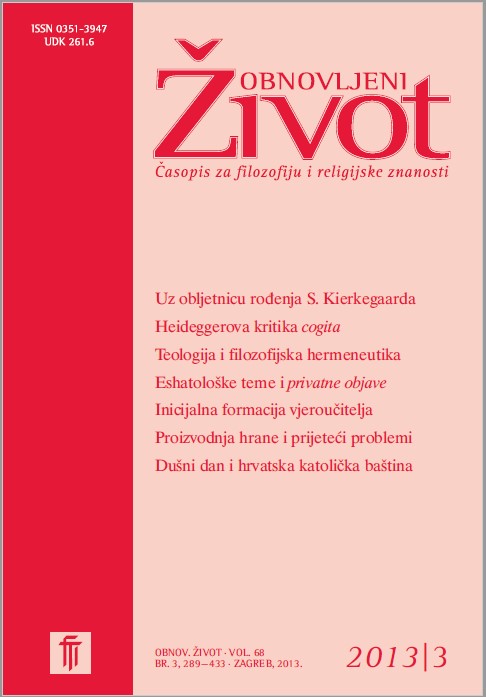Heidegger’s Critique of Descartes’ Cogito
Keywords:
Heidegger, Descartes, the cogito, ontology, modern philosophyAbstract
The aim of the paper is to point out the shift in Heidegger’s view of the cogito. In his early works he felt that Descartes did not tend toward an explanation of the cogito, rather that his aim was to reach, by means of doubt, the cogito as an absolute and with it to establish a new basis for the justification and development of other fields of study. Cogito is merely the indubitable basis, an absolute simple certainty which is the starting point of all deduction. In his mature works he established the cogito as the essential basis of modernism. The aspiration of modernism to freedom of self–deterination is condensed in the cogito. Man, as the only being having the power to determine what is necessary and organizable, defined himself as the centre of being. He becomes the centre when all givens of the being are equated with their representedness. Man is the subjectum, the representing »I« that, in representing itself, establishes each being in its essence and truth. The cogito, in being such an »I«, is re–presentative knowing that it is co–represented with its act of re–presentation.
Downloads
Published
Issue
Section
License
Jednom prihvaćeni članak obvezuje autora da ga ne smije objaviti drugdje bez dozvole uredništva, a i tada samo uz bilješku da je objavljen prvi put u Obnovljenom životu. Uredništvo će obavijestiti autora o prihvaćanju ili neprihvaćanju članka za objavljivanje.
Članci objavljeni u časopisu se, uz prikladno navođenje izvora, smiju besplatno koristiti u obrazovne i druge nekomercijalne svrhe.


